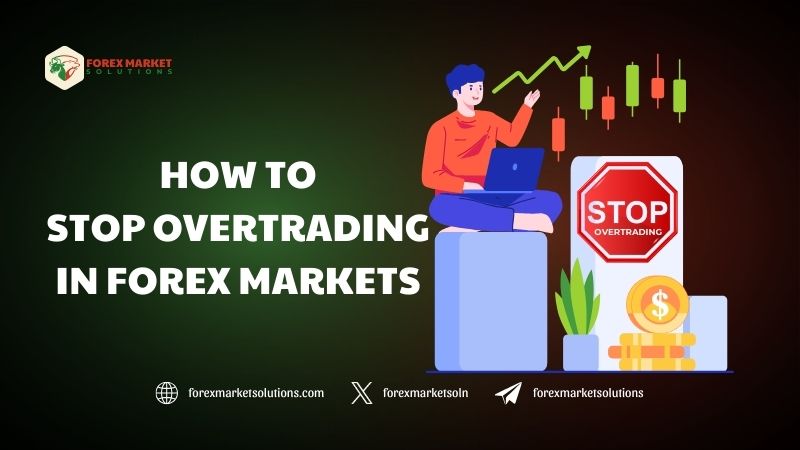The Forex market, with its fast-paced nature and endless opportunities, can be a thrilling yet challenging environment for traders. However, one of the most common pitfalls that traders face is overtrading. How to stop overtrading in Forex markets is a critical question for anyone looking to achieve long-term success in trading. Overtrading occurs when traders execute too many trades, often driven by emotion, impulsiveness, or a lack of strategy. This article will provide actionable strategies to help you avoid overtrading, improve your trading discipline, and protect your capital.
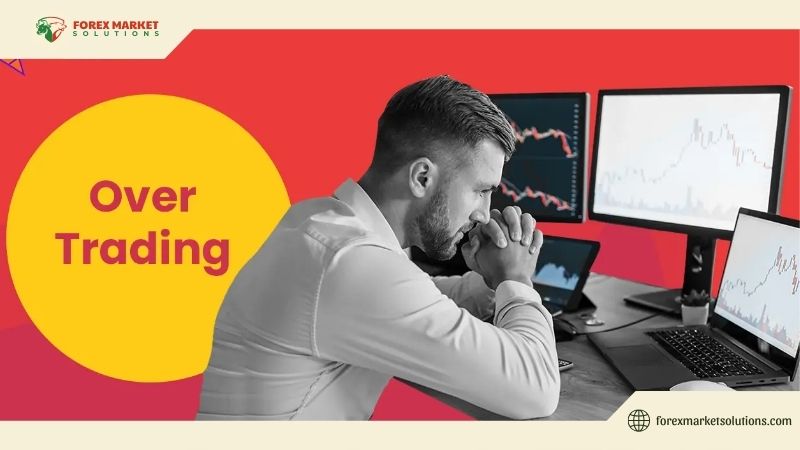
Understanding Overtrading in Forex Trading
Overtrading is a behavior where traders place excessive trades, either in terms of frequency or size, beyond what their trading plan or risk tolerance allows. This can lead to significant financial losses, emotional burnout, and a lack of focus. To master how to stop overtrading in Forex markets, it’s essential to first understand why it happens.
Many traders overtrade due to emotional triggers such as greed, fear of missing out (FOMO), or the urge to recover losses quickly. Others may lack a clear trading plan, leading to impulsive decisions. Additionally, the 24/5 nature of the Forex market can tempt traders to stay active constantly, increasing the risk of overtrading. Recognizing these triggers is the first step toward addressing the issue.
Why Overtrading is Detrimental to Your Success
Overtrading can have severe consequences for both novice and experienced traders. It often leads to higher transaction costs, as each trade incurs spreads or commissions that eat into profits. Moreover, frequent trading increases exposure to market volatility, amplifying the risk of losses. Emotionally, overtrading can cause stress, anxiety, and a loss of confidence, making it harder to stick to a disciplined approach.
By learning how to stop overtrading in Forex markets, you can protect your capital, reduce stress, and focus on high-quality trades that align with your strategy. The following sections will outline practical steps to help you overcome this common trading mistake.
Develop a Solid Trading Plan
One of the most effective ways to address overtrading is to create and follow a well-defined trading plan. A trading plan serves as a roadmap, guiding your decisions and helping you avoid impulsive trades. Your plan should include clear entry and exit criteria, risk management rules, and a daily or weekly trade limit.
When developing your trading plan, consider your financial goals, risk tolerance, and the time you can dedicate to trading. For example, decide how many trades you’ll execute per day or week and stick to this limit. By having a structured plan, you can focus on quality over quantity, which is a key aspect of how to stop overtrading in Forex markets.
Additionally, regularly review and refine your trading plan based on your performance. This ensures that your strategy remains relevant and effective in the ever-changing Forex market.
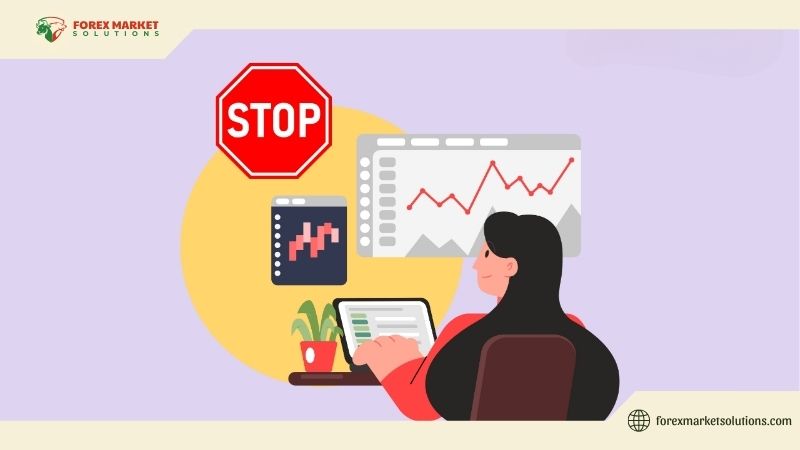
Practice Strict Risk Management
Risk management is the cornerstone of successful trading and a critical component of how to stop overtrading in Forex markets. Without proper risk management, traders may take oversized positions or trade too frequently in an attempt to chase profits or recover losses.
To implement effective risk management, start by setting a risk-per-trade limit, such as risking no more than 1-2% of your account balance on a single trade. This approach helps you stay in the game even after a series of losses. Additionally, use stop-loss orders to protect your capital and avoid holding losing positions in the hope of a reversal.
Another useful technique is to calculate your position size based on your risk tolerance and the distance to your stop-loss level. By adhering to these principles, you can trade with confidence and avoid the temptation to overtrade.
Master Your Emotions
Emotional discipline is a vital skill for any trader aiming to learn how to stop overtrading in Forex markets. Emotions like greed, fear, or excitement can cloud judgment and lead to irrational trading decisions. For example, after a winning streak, you might feel invincible and place more trades than planned. Conversely, after a loss, you might chase the market to “make back” your money.
To master your emotions, practice mindfulness and self-awareness. Before placing a trade, ask yourself if it aligns with your trading plan or if it’s driven by emotion. Taking breaks from trading, especially after a loss or a big win, can help you reset and regain clarity.
Journaling your trades is another powerful tool for emotional control. By recording the reasons behind each trade and your emotional state at the time, you can identify patterns of overtrading and address them proactively.
Limit Market Exposure and Screen Time
The Forex market’s round-the-clock availability can make it tempting to monitor charts constantly, but this often leads to overtrading. Spending excessive time watching price movements can create a sense of urgency, prompting you to enter trades without proper analysis.
To address this, set specific trading hours that align with your strategy and lifestyle. For example, focus on high-liquidity sessions like the London or New York sessions, where price movements are more predictable. By limiting your market exposure, you reduce the urge to trade impulsively, which is a key part of how to stop overtrading in Forex markets.
Additionally, avoid checking your trading platform outside of your designated trading hours. Instead, use this time to analyze past trades, refine your strategy, or engage in activities that promote mental well-being.
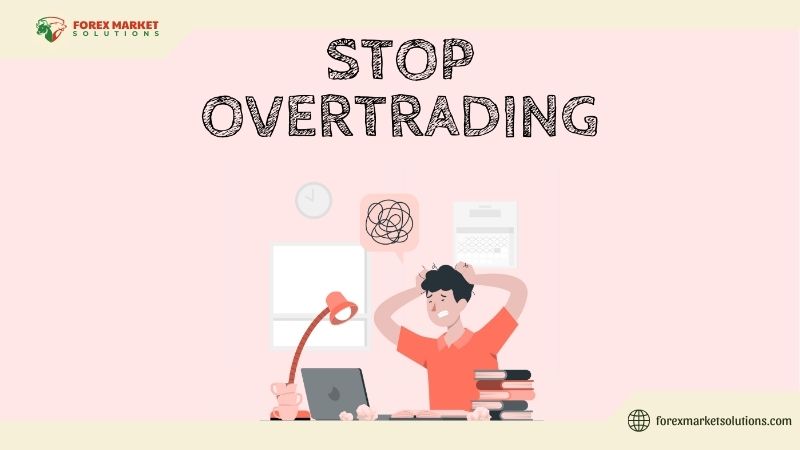
Use Technology to Your Advantage
In today’s digital age, technology can be a powerful ally in your quest to learn how to stop overtrading in Forex markets. Trading platforms often offer tools to help you stay disciplined, such as trade alerts, automated stop-loss orders, and performance tracking.
For instance, you can set alerts to notify you when a currency pair reaches a specific price level, reducing the need to monitor charts constantly. Some platforms also allow you to cap the number of trades you can execute in a given period, helping you stick to your trading plan.
Additionally, consider using trading bots or algorithms that follow your predefined rules. These tools can execute trades on your behalf, removing emotional bias and reducing the risk of overtrading.
Learn from Your Mistakes
Every trader makes mistakes, but the key to success is learning from them. To master how to stop overtrading in Forex markets, regularly review your trading history to identify instances of overtrading. Look for patterns, such as trading during specific market conditions or after emotional triggers.
Once you’ve identified these patterns, adjust your trading plan or habits to prevent them from recurring. For example, if you notice that you overtrade during volatile news events, consider avoiding trading during those times or using a demo account to practice.
Continuous learning and self-improvement are essential for long-term success in Forex trading. By analyzing your mistakes and making informed changes, you can build the discipline needed to avoid overtrading.
Seek Support and Education
Finally, don’t underestimate the value of community and education in your journey to learn how to stop overtrading in Forex markets. Joining a trading community or working with a mentor can provide valuable insights and accountability. Experienced traders can share strategies for staying disciplined and avoiding common pitfalls like overtrading.
Additionally, invest in your education by reading books, attending webinars, or taking online courses about Forex trading. The more knowledge you have, the more confident you’ll feel in your trading decisions, reducing the likelihood of impulsive trades.
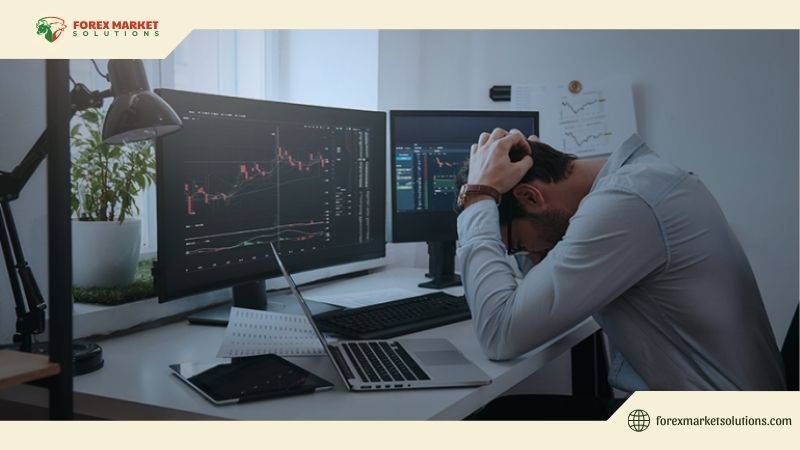
Take Control of Your Trading Journey
Overtrading is a common challenge in the Forex market, but it’s not insurmountable. By understanding the causes of overtrading and implementing the strategies outlined in this article, you can take control of your trading habits and achieve long-term success. From developing a solid trading plan to mastering your emotions and leveraging technology, every step you take brings you closer to learning how to stop overtrading in Forex markets.
Ready to transform your trading journey? Visit Forex Market Solutions for more expert tips, strategies, and resources to help you trade smarter and avoid overtrading. Follow our website today and start building the discipline needed for consistent success in the Forex market.
